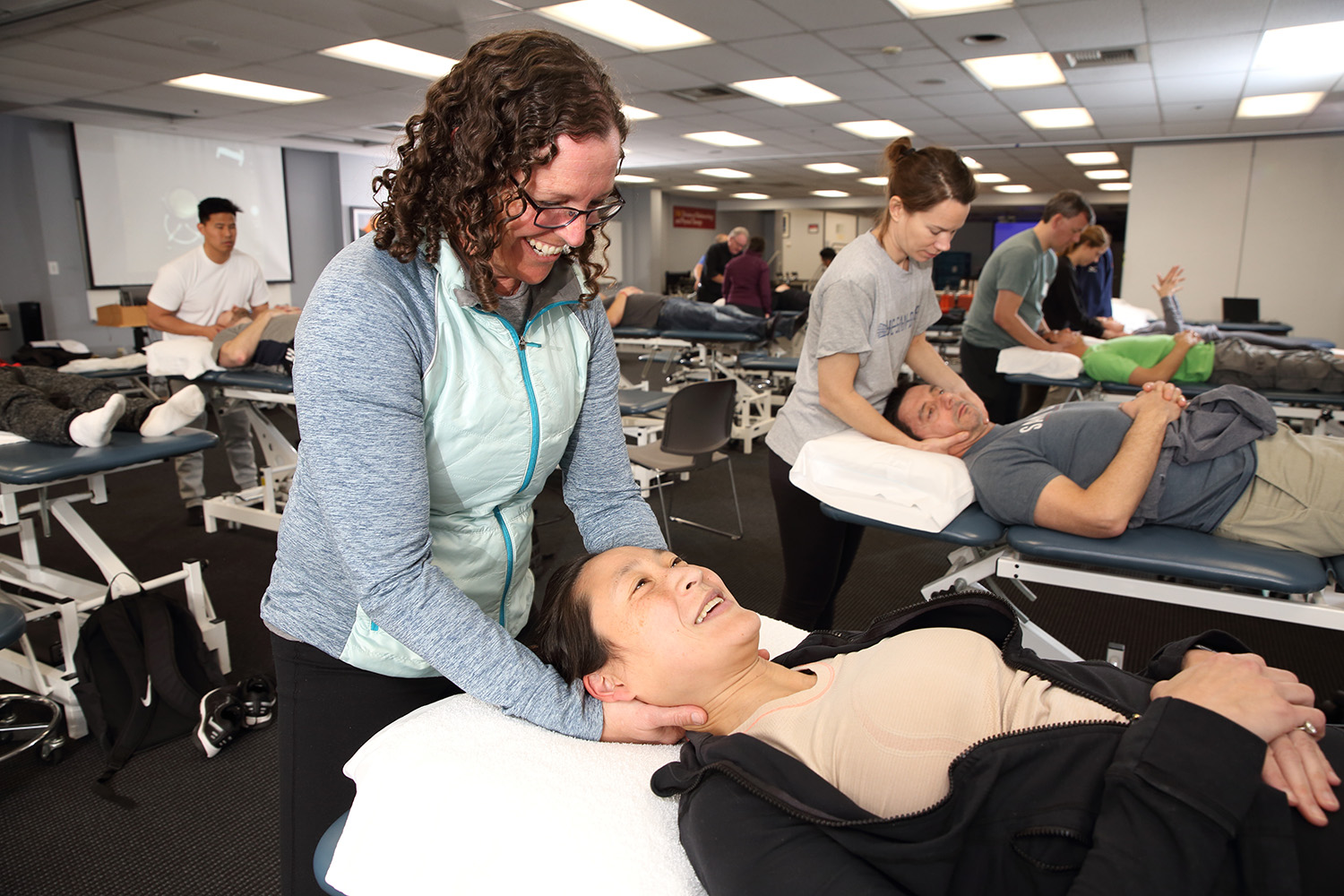02.11.2025
By uscbknpt
A Place for Lifelong Learners

AS ONE OF THE NATION’S TOP PHYSICAL THERAPY PROGRAMS, the USC Division of Biokinesiology and Physical Therapy is committed to providing top-tier, evidence-based course offerings to the broader physical therapy profession. Whether you are a seasoned clinician or just beginning your career, USC’s continuing education courses will provide you the knowledge and skills necessary to put into practice immediately or to help prepare you for upcoming certification exams, license renewals and clinical specializations. Better still, they are taught by some of the profession’s biggest names. We caught up recently with USC PT Continuing Education Program Director Rob Landel MS ’84, DPT ’96 to get a better understanding of what sets a USC continuing education course apart from the rest.
Rob Landel MS ’84, DPT ’96
Professor of Clinical Physical Therapy, Director of Physical Therapy Residency and Fellowship Programs
Director of USC PT Continuing Education Program
What is a typical continuing education course like?
We use the latest best-practice teaching principles to optimize learning and skill acquisition in our courses. This means you’ll have an engaging, active learning experience where you’ll put what you’ve learned to immediate use.
In what ways are in-person courses more beneficial to learners than online courses?
You get the opportunity to interact with other attendees who, by default, have shared interests, and you’ll learn the most effective hands-on skills required for today’s clinical practice.
When it comes to continuing education, people have lots of options. What does USC have to offer that learners might not find in other places?
Our instructors are our faculty, who are leaders in their fields as well as experts from outside our faculty who are drawn to the USC name. Thus, you’ll get the latest information on the best practices for patient care. Our outstanding teaching facilities are second to none.
What type of learner would excel in a USC-hosted course versus another typical continuing education course elsewhere?
Someone who is looking to actively engage in their learning process, interacting with the instructors and with their co-participants.
Apart from knowledge, what else might someone gain from a USC in-person course?
Because we draw from a diverse audience, there are ample opportunities to make connections with people and to share experiences, skills and knowledge that will improve your practice.
What is typical feedback you get from the continuing education courses that are taught at USC?
The information and skills were well-taught, the instructors are excellent and meet the course objectives, and, in our lab courses, folks feel they received a lot of individual attention.
How do you know that you’ve been successful when it comes to a continuing education course?
The ultimate goal is making the participants confident they can apply what they’ve learned in their practice right away, and our exit surveys tell us this has been the case. Participants rate our courses highly and would recommend our courses to their friends/colleagues.
You can find a list of upcoming courses provided at USC by visiting the USC PT Continuing Education page.

